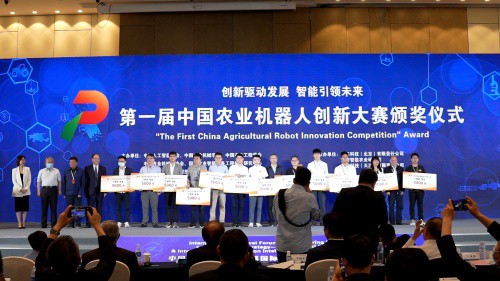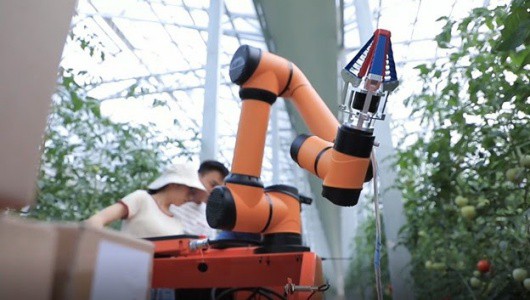A variety of robots designed for different farming tasks were on display at the recent First China Agricultural Robot Innovation Competition, offering a glimpse of China’s future in smart agriculture.
According to market intelligence firm Tractica, the global market for agricultural robot is estimated to reach US$74billion by 2024.
Indeed, potential for agricultural robots to increase farming efficiency and replace human workforce has caught the interest of developed nations such as the United States and Japan, which have funded research projects to develop the technology.
Modernisation through smart agriculture
China, which also faces the same labour shortage. Is under pressure to modernise the industry and has issued guidelines to encourage investment in 13 agricultural and rural sectors, including smart agriculture.
 The competition was organised by Chinese Society of Artificial Intelligence, National Agricultural Information Engineering Research Center, South China Agricultural University, and Pinduoduo
The competition was organised by Chinese Society of Artificial Intelligence, National Agricultural Information Engineering Research Center, South China Agricultural University, and Pinduoduo
For Pinduoduo, co-sponsoring the competition is part of its continual efforts to promote the development and commercialisation of agricultural technology so that farmers can raise their productivity and improve their livelihoods.
Last year, Pinduoduo organised a Smart Agriculture Competition that pitted strawberry growers against teams of data scientists to showcase the potential for precision agriculture to boost yields and incomes.
Precision farming can reduce excessive use of pesticides and fertilizers, and cut down on wastage of scarce resources like water.
As China’s largest agriculture and grocery retail platform, Pinduoduo has a close interest in raising the safety and quality of the food bought by its customers, and in improving the conditions of the growers who sell through its platform.
Getting the China’s smartest brains on the project
The recent First China Agricultural Robot Innovation Competition was held to encourage scientific researchers to innovate in agricultural robotics and develop mature commercial products that can help boost the rural economy.
Teams from universities, scientific research institutes and technology companies showcased their innovations, among them were weeding robots, vertical farming robots, strawberry-picking robots, underwater inspection robots, fish-vaccination robots and disinfection robots.
One of the winners of the competition was a team from Beijing Agricultural Intelligent Equipment Technology Research Center, which presented a tomato-planting robot. The machine has reduced the amount of human labor in crop spraying and pollination, inspection, and transportation, said the team’s leader, Lin Sen.
The robot can achieve a success rate of more than 90% in picking and pollination,” Lin said, adding that the robot has been widely used in Shandong Shouguang Smart Agricultural Science and Technology Park.
Another submission that garnered much attention was an automatic vaccine-injection machine for fish, by Professor Li Jianping of Zhejiang University.
“The robot uses deep learning technology to intelligently identify the optimal injection position of the fry. At present, the injection efficiency can reach 1,200 fish per hour, with a success rate of over 99%, while the survival rate after one month of injection has reached 90%,” Li said.



